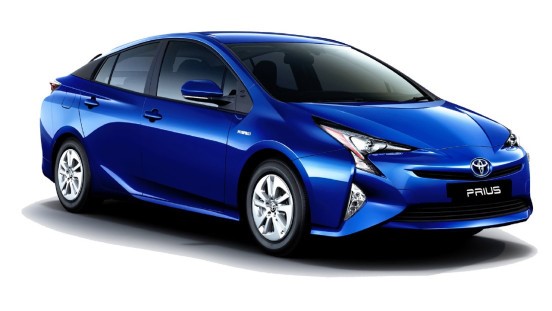Toyota Kabushiki Kaisha
v.
M/s Prius Auto Industries Ltd.
AIR 2018 SC 167
INTRODUCTION
This is a case wherein the Supreme Court dealt with a rather complex area of Intellectual Property Rights. The court was dealing with a question of operation of trademark rights with regard to the question of territoriality.
The court adjudicated on the point as to whether a trademark would be protected on territorial basis or global basis. The court had to deal with the factual matrix of a globally known trademark of a global player, which was not registered in the country vis-a-vis a trademark registered in the country by a local player, however later than the first time it was used by the global player.
The plea of passing off was duly dealt with by the Apex court and it gave sound and cogent reasoning for the conclusion arrived at thereby evolving new grounds for the making a defence of passing off.
FACTS
Toyota is a manufacturer of cars and it was involved in the production of a hybrid car namely ‘Prius’. It was the plaintiff against a spare part supplier. The plaintiff filed a suit to refrain the defendant from using its trademarks namely ‘Prius’, ‘Toyota Innova’, ‘Toyota Device’ and ‘Toyota’.
The last three marks were registered as per the trademark law and the plaintiff got a relief in its favour from the High Court in the first round of litigation. The Ld. single judge restrained the defendant from using all the marks and also awarded damages to the plaintiff.
Both the parties appealed before a Division bench and subsequently the order of the single judge bench was modified. It was held that with regard to the last three trademarks mentioned above, the plaintiff had a right to use the same and the defendants were restrained from using them since the plaintiff had a better claim and title. However, the bone of contention was the Trademark ’Prius’.
The plaintiff claimed that it had been using the trademark since a long time and hence it had the exclusive right to use it however the same was not registered. Whereas on the other hand, the defendants had acquired a registration for the same in the year, 2002.
With regard to ‘Prius’ the court held in favour of the defendant and the appeal with regard to the quantum of damages awarded was dismissed by the court.
ISSUES FOR DETERMINATION
It contended that it had been using the trademark since a very long time dating back to 1997 and the defendants had malafidely registered the same in India. Hence, the court had look into the question as to whether the plaintiff, which was a global player claim the trademark even when it was not registered by it but had using since before.
The plaintiff raised the following contentions:
- The plaintiff contended that recognition and reputation of a trade mark was not contingent on the basis of actual sale of goods in India with regard to the mark in question.
- It was claimed that the term ‘Prius ’ was being widely advertised in whole world since the year 1997 and as such it had established a good will and reputation. It was argued that it was not necessary that in order to prove them, the mark be recognized by each and every individual of the public.
- It was argued that the finding of the high Court that the advertisements were not groundbreaking, and that it did not have transborder reputation subsequently permeating into India was incorrect.
The defendants raised the following contentions:
- It was argued that the defendants were spare part manufacturers and it was within their right under sec 30 of the Act to inform the consumer about the specific vehicle for which the particular spare part is made.
- They claimed that the plaintiff was making hue and cry over a proposed to be used basis and the defendants had obtained a registration way back in the year 2001 and the plaintiff was using the mark in India from 2009 onwards.
- The documents that were relied upon by the plaintiff to establish goodwill were post the date from which the defendant had obtained the trademark.
Judgment-
- The court gave its ruling in favour of the defendants and held that the plaintiff had shown enough proof that it had established enough reputation for the term ‘Prius ’ in India. They held that the principle of territoriality should govern the matter and as such the plaintiff’s brand name ‘Prius’ had not acquired substantial good will in India.
- It was observed that the documents which were relied upon eg. Magazines, online data and dictionary even if accepted will not show the existence of good will and reputation of the product in the Indian market.
- The court relied on the case of Starbucks v. British Sky Boradcasting, [2015] UKSC 31, wherein it was held that in order to prove goodwill mere reputation of cross border will not suffice. It would also have to be seen that within the local jurisdiction also the customers were present.
- On the point of confusion between the use of trademarks and distinguishing the two, the court held that if evidence is placed on record to show that there is a likelihood of confusion to arise in the mind of the consumers, then the same would hold good.
- Thus it can be concluded from the court’s judgment that in order to claim the right of passing off goodwill and reputation would have to be also proved to be existing in the local/domestic jurisdiction and merely on the basis of crossborder reputation a claim for the plea of passing off would not accrue.





